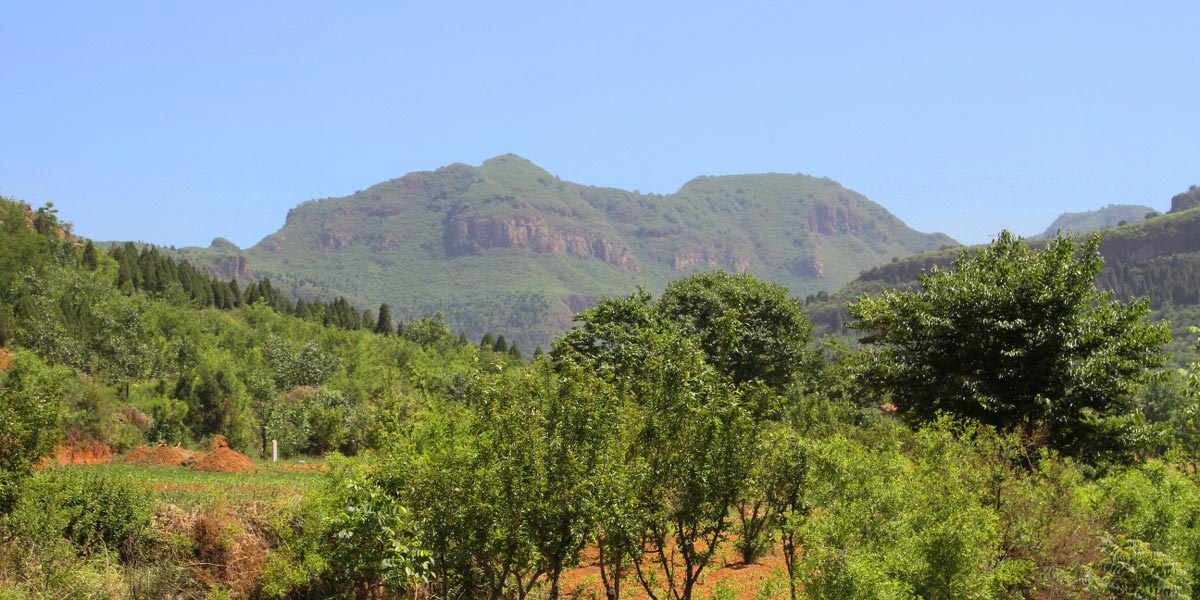
APFnet Project
Details
Introduction
After refining the forest management technique in other successful projects (IUCN LLS, Sino-German Financial Cooperation), BFS together with APFNet is ready to scale up the forest management and livelihoods approach to help other mega-cities with water issues to improve their water supply as well.
Project Data
Name: Rehabilitation and Management of Degraded Forests in the Miyun Reservoir Watershed Duration: 2015-2018 Target area: Three demonstration sites located in the Miyun Reservoir Watershed, in Beijing, China, where the challenge is forest quality for source-water protection. Parties: BFS, BFU, CAF, BFPIC, APFNet.
Rationale and Background
The Miyun Reservoir, the largest of its kind in north China, is the primary source of drinking water for Beijing residents, and provides more than 60% of the capital’s surface drinking water. The reservoir, in recent years, has been plagued by both pollution and degradation of forests around it, which worsens the situation of water shortage and poses a threat to the quality of drinking water. Accounting for 70% of the total area of the watershed where the reservoir is located, forests play an important and irreplaceable role in conserving water and protecting the reservoir and safeguard the quality of water running into the reservoir. With respect to the multifunctions, especially for conserving water, of the forests, there are considerable deficiencies due to lack of wise management. About 75% of the forests in the Miyun  Reservoir Watershed are categorized as “sub-healthyâ€, with the feature of unstable forest ecosystems and low water conserving capacity. In addition, traditional management practice of orchards, especially application of fertilizer, produce pollution on surface water before running into the reservoir, posing a threat to the quality of drinking water of Beijing residents. Meanwhile, the contradiction between livelihood improvement of forest dependent communities and protection of forest resources is challenging as extremely stringent water conservation regulations laying restrictions on industrial development and land use in upper watershed areas has limited local residents’ access to forest resources and intensified their poverty. All these issues, having direct or indirect impacts on water, shall be addressed properly. For a sustained supply of high quality water from the reservoir, a long term forest management plan in the water shall be developed, taking into account of forest management, livelihood improvement and water quality and with a focus on increasing water conserving capacity of forests, reducing pollution from unwise forest management, improving livelihood of forest dependent communities and capacity building of relevant stakeholders in forest management. Therefore, the project is proposed to demonstrate how to manage monoculture plantations of Pinus tabuliformis and Platycladus orientalis using close-to-nature forestry, how to improve management of existing orchard to reduce pollution and how  to improve the livelihood of local communities by wisely using forest resources.
Our Goals
1.improve the water conservation capacity of the forests in three sites of the project by applying close-to-nature management approach
2.reduce water pollution caused by fertilizer application in the orchard selected
3.improve the livelihood of the local community selected by promoting the development of forest recreation
4.enhance the capacity of relevant stakeholders in forest management in environment-friendly manner
5.produce best practice models for a better long-term forest management in the watershed
6.create and promote exchange platform for best-management practices in mega-city watershed management, ultimately reaching hundreds of other Chinese cities and possibly scaling it up to the international level
Actions
Orchard Management
BFS will help local villagers to reduce the amount of fertilizer used on orchards, especially walnut orchards through improved grafting techniques and the introduction of more environmentally friendly fertilizers.
Transformation of Forests
In all three project sites, BFS will apply techniques of close-to-nature forestry (CNF) to improve the quality and stability of the local forests. This will mainly include thinning and underplanting activities. For underplanting native species will be chosen. The plantations chosen are monocultures of either Chinese pine or Oriental Thuja.
Promotion of Eco-Tourism
BFS will develop an infrastructure and eco-tourism development plant for Shichangyu village, build a new forest experience center and hiking paths, train villagers in eco-tourism and help them with marketing of the new eco-village in Beijing.
Monitoring
It has long been a problem that in many projects no long-term monitoring is developed. BFS will develop such monitoring for both the biophysical and socio-economic aspects of the project.
Domestic and International Study Tours
In order to deepen the understanding of local forest practitioners in watershed management, BFS will organize two domestic study tours during the duration of the project in order to visit other watersheds. Furthermore twice one person will get to work or study for 3 months abroad with an organization on topics relevant for the project.
Long Mountain Valley
Shichangyu village is blessed with rich forest resources and convenient transportation which can make the village a good spot for Beijing residents whose forest recreation demands are increasing. It is planned to turn the village into a base for forest recreation and natural education. With the development of eco-tourism, it is expected that the income of local community can be increased, the dependence on forest resources can be decreased and the awareness of forest protection can be further enhanced.
